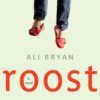Kitabı oku: «Beyond», sayfa 17
“We’ll go at once, Betty, and get her back somehow. Wash your face.”
While she made ready, she fought down those two horrible fears – of losing her child, of losing her lover; the less she feared, the better she could act, the more subtly, the swifter. She remembered that she had somewhere a little stiletto, given her a long time ago. She hunted it out, slipped off its red-leather sheath, and, stabbing the point into a tiny cork, slipped it beneath her blouse. If they could steal her baby, they were capable of anything. She wrote a note to her father, telling him what had happened, and saying where she had gone. Then, in a taxi, they set forth. Cold water and the calmness of her mistress had removed from Betty the main traces of emotion; but she clasped Gyp’s hand hard and gave vent to heavy sighs.
Gyp would not think. If she thought of her little one crying, she knew she would cry, too. But her hatred for those who had dealt this cowardly blow grew within her. She took a resolution and said quietly:
“Mr. Summerhay, Betty. That’s why they’ve stolen our darling. I suppose you know he and I care for each other. They’ve stolen her so as to make me do anything they like.”
A profound sigh answered her.
Behind that moon-face with the troubled eyes, what conflict was in progress – between unquestioning morality and unquestioning belief in Gyp, between fears for her and wishes for her happiness, between the loyal retainer’s habit of accepting and the old nurse’s feeling of being in charge? She said faintly:
“Oh dear! He’s a nice gentleman, too!” And suddenly, wheezing it out with unexpected force: “To say truth, I never did hold you was rightly married to that foreigner in that horrible registry place – no music, no flowers, no blessin’ asked, nor nothing. I cried me eyes out at the time.”
Gyp said quietly:
“No; Betty, I never was. I only thought I was in love.” A convulsive squeeze and creaking, whiffling sounds heralded a fresh outburst. “Don’t cry; we’re just there. Think of our darling!”
The cab stopped. Feeling for her little weapon, she got out, and with her hand slipped firmly under Betty’s arm, led the way upstairs. Chilly shudders ran down her spine – memories of Daphne Wing and Rosek, of that large woman – what was her name? – of many other faces, of unholy hours spent up there, in a queer state, never quite present, never comfortable in soul; memories of late returnings down these wide stairs out to their cab, of Fiorsen beside her in the darkness, his dim, broad-cheekboned face moody in the corner or pressed close to hers. Once they had walked a long way homeward in the dawn, Rosek with them, Fiorsen playing on his muted violin, to the scandal of the policemen and the cats. Dim, unreal memories! Grasping Betty’s arm more firmly, she rang the bell. When the man servant, whom she remembered well, opened the door, her lips were so dry that they could hardly form the words:
“Is Mr. Fiorsen in, Ford?”
“No, ma’am; Mr. Fiorsen and Count Rosek went into the country this afternoon. I haven’t their address at present.” She must have turned white, for she could hear the man saying: “Anything I can get you, ma’am?”
“When did they start, please?”
“One o’clock, ma’am – by car. Count Rosek was driving himself. I should say they won’t be away long – they just had their bags with them.” Gyp put out her hand helplessly; she heard the servant say in a concerned voice: “I could let you know the moment they return, ma’am, if you’d kindly leave me your address.”
Giving her card, and murmuring:
“Thank you, Ford; thank you very much,” she grasped Betty’s arm again and leaned heavily on her going down the stairs.
It was real, black fear now. To lose helpless things – children – dogs – and know for certain that one cannot get to them, no matter what they may be suffering! To be pinned down to ignorance and have in her ears the crying of her child – this horror, Gyp suffered now. And nothing to be done! Nothing but to go to bed and wait – hardest of all tasks! Mercifully – thanks to her long day in the open – she fell at last into a dreamless sleep, and when she was called, there was a letter from Fiorsen on the tray with her tea.
“Gyp:
“I am not a baby-stealer like your father. The law gives me the right to my own child. But swear to give up your lover, and the baby shall come back to you at once. If you do not give him up, I will take her away out of England. Send me an answer to this post-office, and do not let your father try any tricks upon me.
“GUSTAV FIORSEN.”
Beneath was written the address of a West End post-office.
When Gyp had finished reading, she went through some moments of such mental anguish as she had never known, but – just as when Betty first told her of the stealing – her wits and wariness came quickly back. Had he been drinking when he wrote that letter? She could almost fancy that she smelled brandy, but it was so easy to fancy what one wanted to. She read it through again – this time, she felt almost sure that it had been dictated to him. If he had composed the wording himself, he would never have resisted a gibe at the law, or a gibe at himself for thus safeguarding her virtue. It was Rosek’s doing. Her anger flamed up anew. Since they used such mean, cruel ways, why need she herself be scrupulous? She sprang out of bed and wrote:
“How COULD you do such a brutal thing? At all events, let the darling have her nurse. It’s not like you to let a little child suffer. Betty will be ready to come the minute you send for her. As for myself, you must give me time to decide. I will let you know within two days.
“GYP.”
When she had sent this off, and a telegram to her father at Newmarket, she read Fiorsen’s letter once more, and was more than ever certain that it was Rosek’s wording. And, suddenly, she thought of Daphne Wing, whom her father had seen coming out of Rosek’s house. Through her there might be a way of getting news. She seemed to see again the girl lying so white and void of hope when robbed by death of her own just-born babe. Yes; surely it was worth trying.
An hour later, her cab stopped before the Wagges’ door in Frankland Street. But just as she was about to ring the bell, a voice from behind her said:
“Allow me; I have a key. What may I – Oh, it’s you!” She turned. Mr. Wagge, in professional habiliments, was standing there. “Come in; come in,” he said. “I was wondering whether perhaps we shouldn’t be seeing you after what’s transpired.”
Hanging his tall black hat, craped nearly to the crown, on a knob of the mahogany stand, he said huskily:
“I DID think we’d seen the last of that,” and opened the dining-room door. “Come in, ma’am. We can put our heads together better in here.”
In that too well remembered room, the table was laid with a stained white cloth, a cruet-stand, and bottle of Worcestershire sauce. The little blue bowl was gone, so that nothing now marred the harmony of red and green. Gyp said quickly:
“Doesn’t Daph – Daisy live at home, then, now?”
The expression on Mr. Wagge’s face was singular; suspicion, relief, and a sort of craftiness were blended with that furtive admiration which Gyp seemed always to excite in him.
“Do I understand that you – er – ”
“I came to ask if Daisy would do something for me.”
Mr. Wagge blew his nose.
“You didn’t know – ” he began again.
“Yes; I dare say she sees my husband, if that’s what you mean; and I don’t mind – he’s nothing to me now.”
Mr. Wagge’s face became further complicated by the sensations of a husband.
“Well,” he said, “it’s not to be wondered at, perhaps, in the circumstances. I’m sure I always thought – ”
Gyp interrupted swiftly.
“Please, Mr. Wagge – please! Will you give me Daisy’s address?”
Mr. Wagge remained a moment in deep thought; then he said, in a gruff, jerky voice:
“Seventy-three Comrade Street, So’o. Up to seeing him there on Tuesday, I must say I cherished every hope. Now I’m sorry I didn’t strike him – he was too quick for me – ” He had raised one of his gloved hands and was sawing it up and down. The sight of that black object cleaving the air nearly made Gyp scream, her nerves were so on edge. “It’s her blasted independence – I beg pardon – but who wouldn’t?” he ended suddenly.
Gyp passed him.
“Who wouldn’t?” she heard his voice behind her. “I did think she’d have run straight this time – ” And while she was fumbling at the outer door, his red, pudgy face, with its round grey beard, protruded almost over her shoulder. “If you’re going to see her, I hope you’ll – ”
Gyp was gone. In her cab she shivered. Once she had lunched with her father at a restaurant in the Strand. It had been full of Mr. Wagges. But, suddenly, she thought: ‘It’s hard on him, poor man!’
XIII
Seventy-three Comrade Street, Soho, was difficult to find; but, with the aid of a milk-boy, Gyp discovered the alley at last, and the right door. There her pride took sudden alarm, and but for the milk-boy’s eyes fixed on her while he let out his professional howl, she might have fled. A plump white hand and wrist emerging took the can, and Daphne Wing’s voice said:
“Oh, where’s the cream?”
“Ain’t got none.”
“Oh! I told you always – two pennyworth at twelve o’clock.”
“Two penn’orth.” The boy’s eyes goggled.
“Didn’t you want to speak to her, miss?” He beat the closing door. “Lidy wants to speak to you! Good-mornin’, miss.”
The figure of Daphne Wing in a blue kimono was revealed. Her eyes peered round at Gyp.
“Oh!” she said.
“May I come in?”
“Oh, yes! Oh, do! I’ve been practising. Oh, I am glad to see you!”
In the middle of the studio, a little table was laid for two. Daphne Wing went up to it, holding in one hand the milk-can and in the other a short knife, with which she had evidently been opening oysters. Placing the knife on the table, she turned round to Gyp. Her face was deep pink, and so was her neck, which ran V-shaped down into the folds of her kimono. Her eyes, round as saucers, met Gyp’s, fell, met them again. She said:
“Oh, Mrs. Fiorsen, I am glad! I really am. I wanted you so much to see my room – do you like it? How DID you know where I was?” She looked down and added: “I think I’d better tell you. Mr. Fiorsen came here, and, since then, I’ve seen him at Count Rosek’s – and – and – ”
“Yes; but don’t trouble to tell me, please.”
Daphne Wing hurried on.
“Of course, I’m quite mistress of myself now.” Then, all at once, the uneasy woman-of-the-world mask dropped from her face and she seized Gyp’s hand. “Oh, Mrs. Fiorsen, I shall never be like you!”
With a little shiver, Gyp said:
“I hope not.” Her pride rushed up in her. How could she ask this girl anything? She choked back that feeling, and said stonily: “Do you remember my baby? No, of course; you never saw her. HE and Count Rosek have just taken her away from me.”
Daphne Wing convulsively squeezed the hand of which she had possessed herself.
“Oh, what a wicked thing! When?”
“Yesterday afternoon.”
“Oh, I AM glad I haven’t seen him since! Oh, I DO think that was wicked! Aren’t you dreadfully distressed?” The least of smiles played on Gyp’s mouth. Daphne Wing burst forth: “D’you know – I think – I think your self-control is something awful. It frightens me. If my baby had lived and been stolen like that, I should have been half dead by now.”
Gyp answered stonily as ever:
“Yes; I want her back, and I wondered – ”
Daphne Wing clasped her hands.
“Oh, I expect I can make him – ” She stopped, confused, then added hastily: “Are you sure you don’t mind?”
“I shouldn’t mind if he had fifty loves. Perhaps he has.”
Daphne Wing uttered a little gasp; then her teeth came down rather viciously on her lower lip.
“I mean him to do what I want now, not what he wants me. That’s the only way when you love. Oh, don’t smile like that, please; you do make me feel so – uncertain.”
“When are you going to see him next?”
Daphne Wing grew very pink.
“I don’t know. He might be coming in to lunch. You see, it’s not as if he were a stranger, is it?” Casting up her eyes a little, she added: “He won’t even let me speak your name; it makes him mad. That’s why I’m sure he still loves you; only, his love is so funny.” And, seizing Gyp’s hand: “I shall never forget how good you were to me. I do hope you – you love somebody else.” Gyp pressed those damp, clinging fingers, and Daphne Wing hurried on: “I’m sure your baby’s a darling. How you must be suffering! You look quite pale. But it isn’t any good suffering. I learned that.”
Her eyes lighted on the table, and a faint ruefulness came into them, as if she were going to ask Gyp to eat the oysters.
Gyp bent forward and put her lips to the girl’s forehead.
“Good-bye. My baby would thank you if she knew.”
And she turned to go. She heard a sob. Daphne Wing was crying; then, before Gyp could speak, she struck herself on the throat, and said, in a strangled voice:
“Tha – that’s idiotic! I – I haven’t cried since – since, you know. I – I’m perfect mistress of myself; only, I – only – I suppose you reminded me – I NEVER cry!”
Those words and the sound of a hiccough accompanied Gyp down the alley to her cab.
When she got back to Bury Street, she found Betty sitting in the hall with her bonnet on. She had not been sent for, nor had any reply come from Newmarket. Gyp could not eat, could settle to nothing. She went up to her bedroom to get away from the servants’ eyes, and went on mechanically with a frock of little Gyp’s she had begun on the fatal morning Fiorsen had come back. Every other minute she stopped to listen to sounds that never meant anything, went a hundred times to the window to look at nothing. Betty, too, had come upstairs, and was in the nursery opposite; Gyp could hear her moving about restlessly among her household gods. Presently, those sounds ceased, and, peering into the room, she saw the stout woman still in her bonnet, sitting on a trunk, with her back turned, uttering heavy sighs. Gyp stole back into her own room with a sick, trembling sensation. If – if her baby really could not be recovered except by that sacrifice! If that cruel letter were the last word, and she forced to decide between them! Which would she give up? Which follow – her lover or her child?
She went to the window for air – the pain about her heart was dreadful. And, leaning there against the shutter, she felt quite dizzy from the violence of a struggle that refused coherent thought or feeling, and was just a dumb pull of instincts, both so terribly strong – how terribly strong she had not till then perceived.
Her eyes fell on the picture that reminded her of Bryan; it seemed now to have no resemblance – none. He was much too real, and loved, and wanted. Less than twenty-four hours ago, she had turned a deaf ear to his pleading that she should go to him for ever. How funny! Would she not rush to him now – go when and where he liked? Ah, if only she were back in his arms! Never could she give him up – never! But then in her ears sounded the cooing words, “Dear mum!” Her baby – that tiny thing – how could she give her up, and never again hold close and kiss that round, perfect little body, that grave little dark-eyed face?
The roar of London came in through the open window. So much life, so many people – and not a soul could help! She left the window and went to the cottage-piano she had there, out of Winton’s way. But she only sat with arms folded, looking at the keys. The song that girl had sung at Fiorsen’s concert – song of the broken heart – came back to her.
No, no; she couldn’t – couldn’t! It was to her lover she would cling. And tears ran down her cheeks.
A cab had stopped below, but not till Betty came rushing in did she look up.
XIV
When, trembling all over, she entered the dining-room, Fiorsen was standing by the sideboard, holding the child.
He came straight up and put her into Gyp’s arms.
“Take her,” he said, “and do what you will. Be happy.”
Hugging her baby, close to the door as she could get, Gyp answered nothing. Her heart was in such a tumult that she could not have spoken a word to save her life; relieved, as one dying of thirst by unexpected water; grateful, bewildered, abashed, yet instinctively aware of something evanescent and unreal in his altruism. Daphne Wing! What bargain did this represent?
Fiorsen must have felt the chill of this instinctive vision, for he cried out:
“Yes! You never believed in me; you never thought me capable of good! Why didn’t you?”
Gyp bent her face over her baby to hide the quivering of her lips.
“I am sorry – very, very sorry.”
Fiorsen came closer and looked into her face.
“By God, I am afraid I shall never forget you – never!”
Tears had come into his eyes, and Gyp watched them, moved, troubled, but still deeply mistrusting.
He brushed his hand across his face; and the thought flashed through her: ‘He means me to see them! Ah, what a cynical wretch I am!’
Fiorsen saw that thought pass, and muttering suddenly:
“Good-bye, Gyp! I am not all bad. I AM NOT!” He tore the door open and was gone.
That passionate “I am not!” saved Gyp from a breakdown. No; even at his highest pitch of abnegation, he could not forget himself.
Relief, if overwhelming, is slowly realized; but when, at last, what she had escaped and what lay before her were staring full in each other’s face, it seemed to her that she must cry out, and tell the whole world of her intoxicating happiness. And the moment little Gyp was in Betty’s arms, she sat down and wrote to Summerhay:
“DARLING,
“I’ve had a fearful time. My baby was stolen by him while I was with you. He wrote me a letter saying that he would give her back to me if I gave you up. But I found I couldn’t give you up, not even for my baby. And then, a few minutes ago, he brought her – none the worse. Tomorrow we shall all go down to Mildenham; but very soon, if you still want me, I’ll come with you wherever you like. My father and Betty will take care of my treasure till we come back; and then, perhaps, the old red house we saw – after all. Only – now is the time for you to draw back. Look into the future – look far! Don’t let any foolish pity – or honour – weigh with you; be utterly sure, I do beseech you. I can just bear it now if I know it’s for your good. But afterward it’ll be too late. It would be the worst misery of all if I made you unhappy. Oh, make sure – make sure! I shall understand. I mean this with every bit of me. And now, good-night, and perhaps – good-bye.
“Your“GYP.”
She read it over and shivered. Did she really mean that she could bear it if he drew back – if he did look far, far into the future, and decided that she was not worth the candle? Ah, but better now – than later.
She closed and sealed the letter, and sat down to wait for her father. And she thought: ‘Why does one have a heart? Why is there in one something so much too soft?’
Ten days later, at Mildenham station, holding her father’s hand, Gyp could scarcely see him for the mist before her eyes. How good he had been to her all those last days, since she told him that she was going to take the plunge! Not a word of remonstrance or complaint.
“Good-bye, my love! Take care of yourself; wire from London, and again from Paris.” And, smiling up at her, he added: “He has luck; I had none.”
The mist became tears, rolled down, fell on his glove.
“Not too long out there, Gyp!”
She pressed her wet cheek passionately to his. The train moved, but, so long as she could see, she watched him standing on the platform, waving his grey hat, then, in her corner, sat down, blinded with tears behind her veil. She had not cried when she left him the day of her fatal marriage; she cried now that she was leaving him to go to her incredible happiness.
Strange! But her heart had grown since then.
Part IV
I
Little Gyp, aged nearly four and a half that first of May, stood at the edge of the tulip border, bowing to two hen turkeys who were poking their heads elegantly here and there among the flowers. She was absurdly like her mother, the same oval-shaped face, dark arched brows, large and clear brown eyes; but she had the modern child’s open-air look; her hair, that curled over at the ends, was not allowed to be long, and her polished brown legs were bare to the knees.
“Turkeys! You aren’t good, are you? Come ON!” And, stretching out her hands with the palms held up, she backed away from the tulip-bed. The turkeys, trailing delicately their long-toed feet and uttering soft, liquid interrogations, moved after her in hopes of what she was not holding in her little brown hands. The sun, down in the west, for it was past tea-time, slanted from over the roof of the red house, and painted up that small procession – the deep blue frock of little Gyp, the glint of gold in the chestnut of her hair; the daisy-starred grass; the dark birds with translucent red dewlaps, and checkered tails and the tulip background, puce and red and yellow. When she had lured them to the open gate, little Gyp raised herself, and said:
“Aren’t you duffies, dears? Shoo!” And on the tails of the turkeys she shut the gate. Then she went to where, under the walnut-tree – the one large tree of that walled garden – a very old Scotch terrier was lying, and sitting down beside him, began stroking his white muzzle, saying:
“Ossy, Ossy, do you love me?”
Presently, seeing her mother in the porch, she jumped up, and crying out: “Ossy – Ossy! Walk!” rushed to Gyp and embraced her legs, while the old Scotch terrier slowly followed.
Thus held prisoner, Gyp watched the dog’s approach. Nearly three years had changed her a little. Her face was softer, and rather more grave, her form a little fuller, her hair, if anything, darker, and done differently – instead of waving in wings and being coiled up behind, it was smoothly gathered round in a soft and lustrous helmet, by which fashion the shape of her head was better revealed.
“Darling, go and ask Pettance to put a fresh piece of sulphur in Ossy’s water-bowl, and to cut up his meat finer. You can give Hotspur and Brownie two lumps of sugar each; and then we’ll go out.” Going down on her knees in the porch, she parted the old dog’s hair, and examined his eczema, thinking: “I must rub some more of that stuff in to-night. Oh, ducky, you’re not smelling your best! Yes; only – not my face!”
A telegraph-boy was coming from the gate. Gyp opened the missive with the faint tremor she always felt when Summerhay was not with her.
“Detained; shall be down by last train; need not come up to-morrow. – BRYAN.”
When the boy was gone, she stooped down and stroked the old dog’s head.
“Master home all day to-morrow, Ossy – master home!”
A voice from the path said, “Beautiful evenin’, ma’am.”
The “old scoundrel,” Pettance, stiffer in the ankle-joints, with more lines in his gargoyle’s face, fewer stumps in his gargoyle’s mouth, more film over his dark, burning little eyes, was standing before her, and, behind him, little Gyp, one foot rather before the other, as Gyp had been wont to stand, waited gravely.
“Oh, Pettance, Mr. Summerhay will be at home all to-morrow, and we’ll go a long ride: and when you exercise, will you call at the inn, in case I don’t go that way, and tell Major Winton I expect him to dinner to-night?”
“Yes, ma’am; and I’ve seen the pony for little Miss Gyp this morning, ma’am. It’s a mouse pony, five year old, sound, good temper, pretty little paces. I says to the man: ‘Don’t you come it over me,’ I says; ‘I was born on an ‘orse. Talk of twenty pounds, for that pony! Ten, and lucky to get it!’ ‘Well,’ he says, ‘Pettance, it’s no good to talk round an’ round with you. Fifteen!’ he says. ‘I’ll throw you one in,’ I says, ‘Eleven! Take it or leave it.’ ‘Ah!’ he says, ‘Pettance, YOU know ‘ow to buy an ‘orse. All right,’ he says; ‘twelve!’ She’s worth all of fifteen, ma’am, and the major’s passed her. So if you likes to have ‘er, there she is!”
Gyp looked at her little daughter, who had given one excited hop, but now stood still, her eyes flying up at her mother and her lips parted; and she thought: “The darling! She never begs for anything!”
“Very well, Pettance; buy her.”
The “old scoundrel” touched his forelock:
“Yes, ma’am – very good, ma’am. Beautiful evenin’, ma’am.” And, withdrawing at his gait of one whose feet are at permanent right angles to the legs, he mused: ‘And that’ll be two in my pocket.’
Ten minutes later Gyp, little Gyp, and Ossian emerged from the garden gate for their evening walk. They went, not as usual, up to the downs, but toward the river, making for what they called “the wild.” This was an outlying plot of neglected ground belonging to their farm, two sedgy meadows, hedged by banks on which grew oaks and ashes. An old stone linhay, covered to its broken thatch by a huge ivy bush, stood at the angle where the meadows met. The spot had a strange life to itself in that smooth, kempt countryside of cornfields, grass, and beech-clumps; it was favoured by beasts and birds, and little Gyp had recently seen two baby hares there. From an oak-tree, where the crinkled leaves were not yet large enough to hide him, a cuckoo was calling and they stopped to look at the grey bird till he flew off. The singing and serenity, the green and golden oaks and ashes, the flowers – marsh-orchis, ladies’ smocks, and cuckoo-buds, starring the rushy grass – all brought to Gyp that feeling of the uncapturable spirit which lies behind the forms of nature, the shadowy, hovering smile of life that is ever vanishing and ever springing again out of death. While they stood there close to the old linhay a bird came flying round them in wide circles, uttering shrill cries. It had a long beak and long, pointed wings, and seemed distressed by their presence. Little Gyp squeezed her mother’s hand.
“Poor bird! Isn’t it a poor bird, mum?”
“Yes, dear, it’s a curlew – I wonder what’s the matter with it. Perhaps its mate is hurt.”
“What is its mate?”
“The bird it lives with.”
“It’s afraid of us. It’s not like other birds. Is it a real bird, mum? Or one out of the sky?”
“I think it’s real. Shall we go on and see if we can find out what’s the matter?”
“Yes.”
They went on into the sedgy grass and the curlew continued to circle, vanishing and reappearing from behind the trees, always uttering those shrill cries. Little Gyp said:
“Mum, could we speak to it? Because we’re not going to hurt nothing, are we?”
“Of course not, darling! But I’m afraid the poor bird’s too wild. Try, if you like. Call to it: ‘Courlie! Courlie!”’
Little Gyp’s piping joined the curlew’s cries and other bird-songs in the bright shadowy quiet of the evening till Gyp said:
“Oh, look; it’s dipping close to the ground, over there in that corner – it’s got a nest! We won’t go near, will we?”
Little Gyp echoed in a hushed voice:
“It’s got a nest.”
They stole back out of the gate close to the linhay, the curlew still fighting and crying behind them.
“Aren’t we glad the mate isn’t hurt, mum?”
Gyp answered with a shiver:
“Yes, darling, fearfully glad. Now then, shall we go down and ask Grandy to come up to dinner?”
Little Gyp hopped. And they went toward the river.
At “The Bowl of Cream,” Winton had for two years had rooms, which he occupied as often as his pursuits permitted. He had refused to make his home with Gyp, desiring to be on hand only when she wanted him; and a simple life of it he led in those simple quarters, riding with her when Summerhay was in town, visiting the cottagers, smoking cigars, laying plans for the defence of his daughter’s position, and devoting himself to the whims of little Gyp. This moment, when his grandchild was to begin to ride, was in a manner sacred to one for whom life had scant meaning apart from horses. Looking at them, hand in hand, Gyp thought: ‘Dad loves her as much as he loves me now – more, I think.’
Lonely dinner at the inn was an infliction which he studiously concealed from Gyp, so he accepted their invitation without alacrity, and they walked on up the hill, with little Gyp in the middle, supported by a hand on each side.
The Red House contained nothing that had been in Gyp’s married home except the piano. It had white walls, furniture of old oak, and for pictures reproductions of her favourites. “The Death of Procris” hung in the dining-room. Winton never failed to scrutinize it when he came in to a meal – that “deuced rum affair” appeared to have a fascination for him. He approved of the dining-room altogether; its narrow oak “last supper” table made gay by a strip of blue linen, old brick hearth, casement windows hung with flowered curtains – all had a pleasing austerity, uncannily redeemed to softness. He got on well enough with Summerhay, but he enjoyed himself much more when he was there alone with his daughter. And this evening he was especially glad to have her to himself, for she had seemed of late rather grave and absent-minded. When dinner was over and they were undisturbed, he said:
“It must be pretty dull for you, my dear, sometimes. I wish you saw more people.”
“Oh no, Dad.”
Watching her smile, he thought: ‘That’s not sour grapes” – What is the trouble, then?’
“I suppose you’ve not heard anything of that fellow Fiorsen lately?”
“Not a word. But he’s playing again in London this season, I see.”
“Is he? Ah, that’ll cheer them.” And he thought: ‘It’s not that, then. But there’s something – I’ll swear!’
“I hear that Bryan’s going ahead. I met a man in town last week who spoke of him as about the most promising junior at the bar.”
“Yes; he’s doing awfully well.” And a sound like a faint sigh caught his ears. “Would you say he’s changed much since you knew him, Dad?”
“I don’t know – perhaps a little less jokey.”
“Yes; he’s lost his laugh.”
It was very evenly and softly said, yet it affected Winton.
“Can’t expect him to keep that,” he answered, “turning people inside out, day after day – and most of them rotten. By George, what a life!”
But when he had left her, strolling back in the bright moonlight, he reverted to his suspicions and wished he had said more directly: “Look here, Gyp, are you worrying about Bryan – or have people been making themselves unpleasant?”














